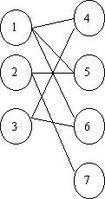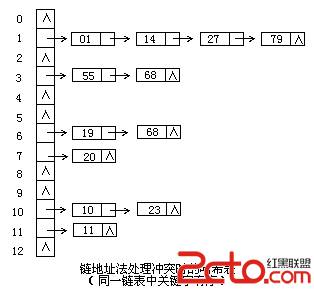栈的顺序存储,所谓的顺序栈
与线性表类似栈也有两种存储结构,即顺序存储结构和链表存储结构。栈的顺序存储结构亦称为顺序栈,它是运算受限的顺序表。
#pragma once
class stack
{
public:
stack(void);
stack(int maxsize);
~stack(void);
private:
int *m_list;
int m_maxsize;
int m_top;
public:
bool push(int value);
bool pop();
bool top(int *value);
bool empty();
bool full();
int size();
void output();
};
#include "StdAfx.h"
#include "stack.h"
stack::stack(void)
{
m_maxsize = 10;
m_list = new int[m_maxsize];
for(int i=0; i<m_maxsize; i++)
{
m_list[i] = 0xFFFFFFFF;
}
m_top = -1;
}
stack::stack(int maxsize)
{
m_maxsize = maxsize;
m_list = new int[m_maxsize];
for(int i=0; i<m_maxsize; i++)
{
m_list[i] = 0xFFFFFFFF;
}
m_top = -1;
}
stack::~stack(void)
{
delete []m_list;
m_top = -1;
m_list = NULL;
}
bool stack::push(int value)
{
if (!full())
{
m_list[m_top] = value;
m_top++;
return true;
}
return false;
}
bool stack::pop()
{
if(!empty())
{
m_top--;
return true;
}
return false;
}
bool stack::top(int *value)
{
if (!empty())
{
*value = m_list[m_top - 1];
return true;
}
*value = 0xFFFFFFFF;
return false;
}
bool stack::empty()
{
if (m_top == -1)
{
return true;
}
return false;
}
bool stack::full()
{
if (m_top + 1 == m_maxsize)
{
return true;
}
return false;
}
int stack::size()
{
return m_top + 1;
}
void stack::output()
{
printf("---------------------------------\n");
printf("stack information:\n");
printf("maxsize=%d\n", m_maxsize);
printf("top=%d\n", m_top);
for(int i=0; i<m_top; i++)
{
printf("index%d=%d\n", i, m_list[i]);
}
}
// sequstack.cpp : Defines the entry point for the console application.
//
#include "stdafx.h"
#include "stack.h"
int _tmain(int argc, _TCHAR* argv[])
{
stack mystack(10);
//入栈 0 --- 9
/*for(int i=0; i<10; i++)
{
mystack.push(i);
}
if (mystack.full()) printf("stack is full\n");
printf("stack size=%d\n", mystack.size());
//出栈
for(int i=0; i<10; i++)
{
int value = 0;
mystack.top(&value);
mystack.pop();
printf("pop value=%d\n", value);
}
if (mystack.empty()) printf("stack is empty\n");
printf("stack size=%d\n", mystack.size());*/
mystack.push(8);
mystack.push(9);
mystack.push(10);
mystack.push(11);
printf("size=%d\n", mystack.size());
int count = mystack.size();
for(int i=0; i<count; i++)
{
int value = 0;
mystack.top(&value);
printf("value = %d\n", value);
mystack.pop();
}
getchar();
return 0;
}
补充:软件开发 , C++ ,





